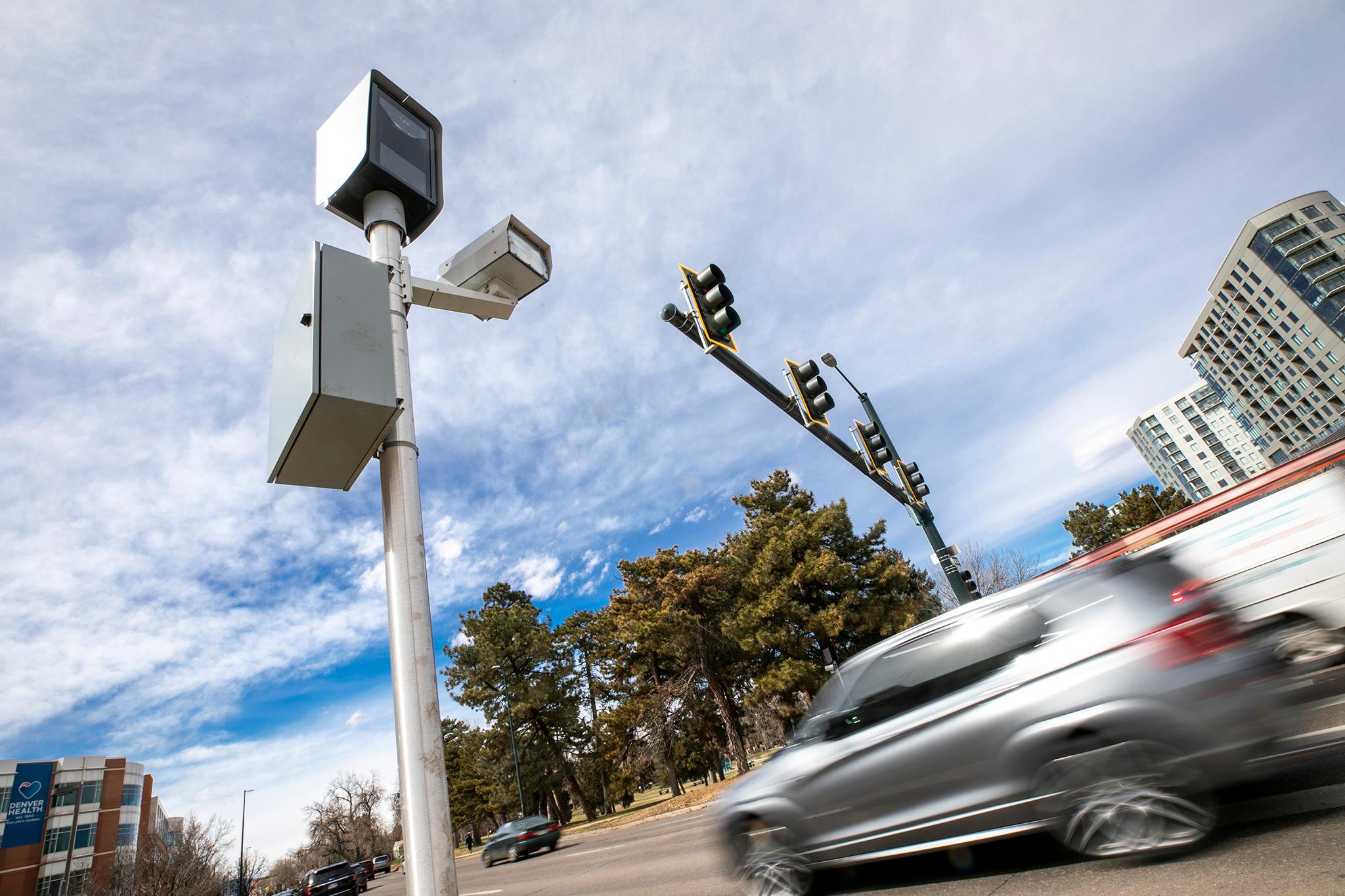
The Colorado Department of Transportation will soon start using automated speed cameras on its highways, focusing first on construction zones.
Last year, the legislature loosened the rules around such enforcement systems, allowing them in more places. Studies show automated speed cameras can lead to a drop in road injuries and deaths. Some local governments, like the town of Morrison, have quickly taken advantage of that law.
However, the 2023 legislation was not clear on CDOT’s legal authority. So this year, at the agency's request, lawmakers passed a bill that explicitly gives CDOT and the Colorado State Patrol the power to use automated speed cameras on state highways — including interstates but not toll roads like E-470 or Northwest Parkway.
A spokesperson for Gov. Jared Polis said he will sign the bill; he has until Friday to sign, veto or let it and other outstanding bills passed in the legislative session become law.
CDOT says it “has plans in place to quickly take advantage” of the pending law by testing an enforcement system in construction zones. As of 2022, 62 CDOT workers have been killed on duty since 1929.
“We want to make those work zones safer for our workers, but also for drivers,” said CDOT spokesman Tim Hoover. “We want to see fewer lives lost among everybody.”
CDOT will then study the results from that pilot program with an eye toward expanding its network of speed cameras to monitor sections of highways with a lot of crashes, Hoover said.
“Hopefully we learn that this is a good way to keep people safe in work zones and then see if it's something that we want to use on highways broadly,” Hoover said.
Traffic fatalities in Colorado hit a 40-year high in 2022 before ticking down slightly last year. Pedestrian and cyclist deaths, however, jumped by 18 percent in 2023.
The bill caps tickets issued by the cameras at $75, except for ones issued in construction and school zones. Revenue from the speed cameras will go toward safety projects, with priority given to those focused on vulnerable road users. The bill also requires that at least $7 million a year go toward such projects.
Bill sponsors had initially sought to raise $20 million a year via a new car registration fee that would scale with the weight of a vehicle. But the governor did not support the fee idea and worked with legislators to remove it, said Shelby Wieman, a Polis spokesperson.
“Governor Polis is committed to funding multimodal infrastructure and protecting public safety on Colorado's roads and this law will help do that,” she said.
Eliminating the fee was an “easier path,” said Sen. Lisa Cutter, D-Jefferson County. “And we needed to make sure we got something done.”
The bill also directs CDOT to set yearly declining targets for vulnerable road user deaths and serious bodily injuries and establish engineering methodologies that prioritize safety over speed on particularly dangerous roads. It also makes it easier for automated cameras to be used to keep bus-only lanes clear of unauthorized drivers.








